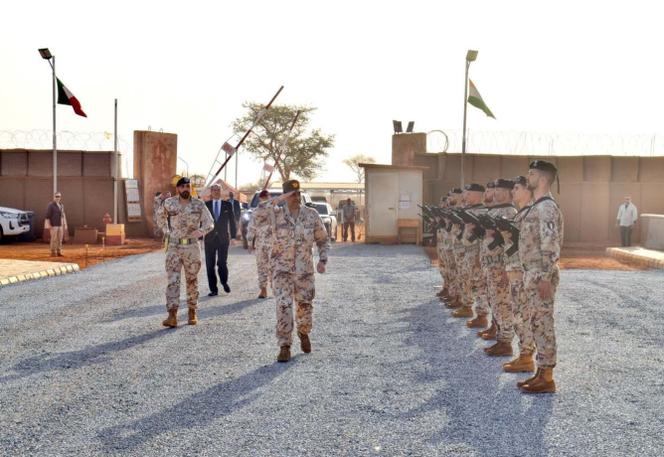


French, Americans, and now Germans: On July 6, Berlin announced that it would withdraw its last 38 soldiers from Niger by August 31. Since the July 26, 2023 coup in Niamey, Western soldiers have been leaving the country once considered by the West an ally in the fight against jihadism in the Sahel.
Committed to a geostrategic reorientation, the ruling General Abdourahamane Tiani has turned to Russia (whose first elements of the paramilitary organization Africa Corps arrived in the country in April), Turkey (whose delegation visited the country on July 17), and Iran. In May, the online media Africa Intelligence revealed that "confidential negotiations" had begun between Tehran and Niamey "for the delivery of 300 metric tons of yellow cake" (uranium concentrate) from Niger. These negotiations, closely monitored by US intelligence services, have not yet been finalized.
However, one Western presence remains unscathed for the time being: that of Italy, which has continued its bilateral support mission in Niger since 2018. Rome's stated aim in maintaining this cooperation is clear: to limit migratory flows from sub-Saharan Africa by contributing, in particular, to "border surveillance activities." This approach is similar in Tunisia and Libya, two other countries on the migratory routes. On July 17, a forum was held in Tripoli on the issue, during which the President of the Italian Council, Giorgia Meloni, recalled the Mattei Plan, presented at the Italy-Africa summit in January, which includes development projects designed to tackle the root causes of immigration from sub-Saharan Africa to Europe.
According to figures published in August 2023, around 250 Italian military staff are present in Niger for training and advisory activities. In Rome, the Defense Ministry has not confirmed a possible increase in the number of troops, which could rise to 500. "The training provided concerns the armed forces, but also the gendarmerie and customs, which reflects the desire to fight illegal immigration," explained Francesca Caruso, an independent researcher who has worked for the Istituto Affari Internazionali, an Italian think-tank. To date, the Italian Ministry of Defense claims to have trained 9,235 soldiers for the Nigerien security forces.
Since the coup, Italy has distinguished itself from its European neighbors by maintaining good diplomatic relations with the Niger authorities. This is due to its more conciliatory strategy towards the coup plotters, unlike some European and West African countries that have considered military intervention to reinstate the former president, Mohamed Bazoum. "The only solution is diplomatic," said Antonio Tajani, the Italian foreign minister, in the summer of 2023 in an interview with La Stampa, underlining the risk that the Italians would be "seen as new colonizers" if they supported an armed operation in Niger.
You have 37.69% of this article left to read. The rest is for subscribers only.
